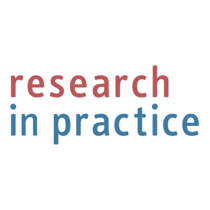Manageable workloads are essential for retaining skilled social workers and improving outcomes for children and families. A Department for Education (DfE) report, summarising the work of the National Workload Action Group (NWAG) led by Research in Practice, has emphasised the need for continued innovation, investment in technology, and a systems approach to reform.
Stable Homes, Built on Love identified the need to improve social worker retention rates across the country and reduce unnecessary workload pressures, so that they can spend more time building relationships with children and families. The government has since committed to ensuring a strong children’s social care workforce in which social workers are supported and valued.
The NWAG spent two years exploring workload. The group, including sector leaders, practitioners, academics, and regulators, focused on five priority areas:
- administrative support
- supervision quality
- workload and caseload management.
- hybrid working and digital practice
- use of artificial intelligence (AI) in case recording
The findings highlight how administrative pressures, poor digital infrastructure, and a limited and uneven access to effective reflective supervision contribute to burnout and high turnover among social workers.
The NWAG emphasised that workload issues cannot be solved in isolation. Broader systemic pressures – such as rising child and family poverty, mental health needs, and underfunded early help services – continue to drive demand.
Administrative support needed to reduce workloads
The report identifies a range of ways in which administrative support is being provided to social workers in different areas. It recommends clearer guidance on which tasks require social work expertise, and those that can be delegated or automated. It also calls for evaluation of whether time saved through administrative support translates into more direct work with children and families.
Supervision quality
Reflective supervision is widely recognised as an essential ingredient in quality social work practice. NWAG recommends that the sector draws upon the growing body of evidence on how to enable and effective, reflective supervision to spread and support the excellent practice achieved in some organisations.
Workload and caseload management
This NWAG report recognises the challenge in identifying existing tools which accurately measure a social worker’s workload. It says that accurate measurement of workload is an important factor in determining ‘safe workloads’.
The report asks the DfE to define ‘safe workload limits’ and develop a national workforce strategy to support the social worker workforce.It suggests that a review of existing statistical workforce data would ensure this includes accurate, timely data on workforce numbers, caseloads, vacancies and sickness/absence levels.
Hybrid working and digital practice
This report explores the introduction of hybrid working practices in local authorities.
Hybrid working became the standard way of working during the pandemic and has continued in many places. While many report it has improved flexibility for the workforce, it can present a range of challenges, especially for early-career social workers.
Further research is needed to assess the longer-term impact of hybrid working and flexible working on workforce wellbeing, workforce learning and professional development and, importantly, the impact on children and families.
Digital practice, increasing during the pandemic, continues to be used often with little specific guidance on digital social work practice. In many places, digital practices may not have been reviewed since the pandemic. The report recommends further work to explore the implications of digital social work practice and a review of the Standards for Employers of Social Workers to ensure they reflect current and emerging practice.
Use of AI in case recording
NWAG explored the potential for the use of AI in case recording, focusing on how it might reduce unnecessary workload and identifying the benefits and challenges of the use of AI in children’s social care.
The report makes two key recommendations:
- That national guidance be developed on the use of AI in children’s social care.
- An independent consultation be conducted with children and families to fully explore their views on the use of AI in case recording.
The report suggest these outputs could provide the basis of a framework to guide the responsible use of AI in social care as its use and application increases.
Valuing the social worker workforce
The National Workload Action Group (NWAG) engaged with 22 local authorities through the Review, Testing and Implementation Network (RTIN), involving 115 professionals who tested resources and shaped these recommendations.
Research in Practice with King’s College, London, Essex County Council, and a team of skilled associates, were commissioned to deliver several Department for Education planned reforms to social work. This included NWAG resources to support employers to adhere to the social work employer standards, and tools to support local authorities to engage agency social workers.



